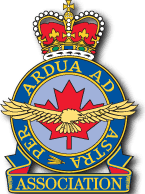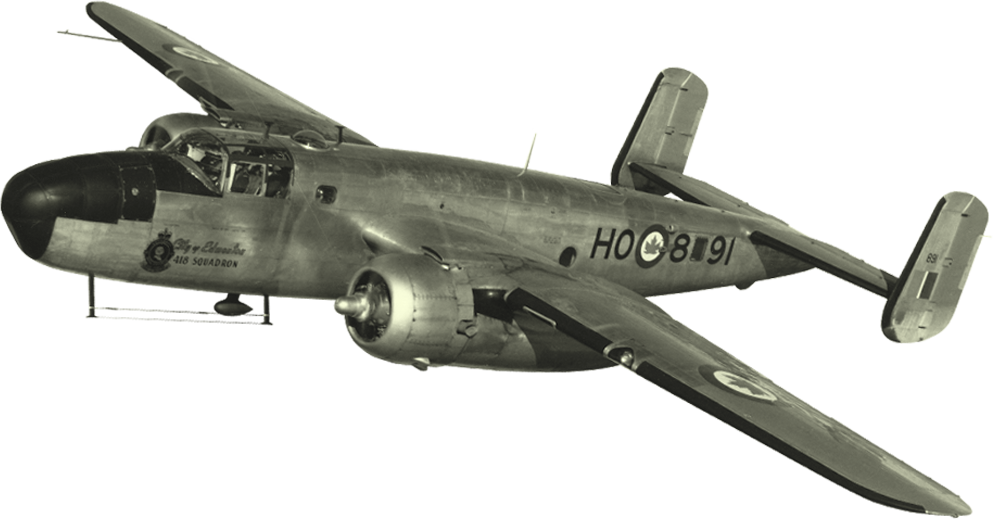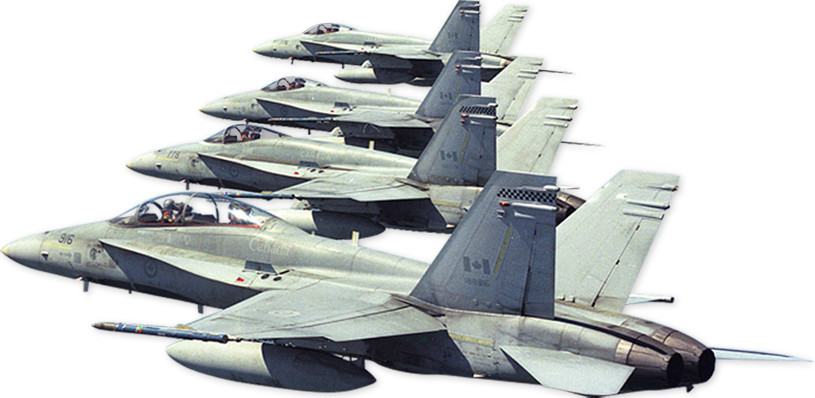SPENCE,
Percy Edwin
Pilot Officer,
No.78 Squadron,
J16535
Distinguished Flying Cross and Mention in Despatches
RCAF Personnel Awards 1939-1949
Description (click to view)
SPENCE, P/O Percy Edwin (J16535) - Distinguished Flying Cross - No.78 Squadron - Award effective 7 May 1943 as per London Gazette dated 14 May 1943 and AFRO 1035/43 dated 4 June 1943. Born in Sydney, Nova Scotia, 15 April 1919; home there; enlisted in Halifax, 14 February 1941 and posted to No.1 Manning Depot. To No.1 BGS (guard), 24 March 1941. To No.1 ITS, 16 May 1941; graduated and promoted LAC, 21 June 1941 when posted to No.7 EFTS; graduated 8 August 1941 when posted to No.16 SFTS; graduated and promoted Sergeant, 7 November 1941. To “Y” Depot, 8 November 1941. To RAF overseas, 8 December 1941. Promoted Flight Sergesnt, 7 May 1942. Commissioned 1 December 1942. Promoted Flying Officer, 1 June 1943. Promoted Flight Lieutenant, 18 November 1943. Appears to be instructing at No.1664 Heavy Conversion Unit in July 1944 (see record for J.E. Moffatt). Repatriated 13 June 1945. Retired 9 September 1945. Re-engaged as pilot, 15 September 1951 (47026). Served with No.19 Technical Unit. Award presented by King George VI, 7 December 1943. Died in 2005, possibly in Penticton. Photo PL-21660 is a portrait. // This officer has participated in many successful sorties against the most heavily defended targets, including two against Berlin. His courage, determination and initiative have contributed largely to the high standard of efficiency maintained by his crew. // NOTE: Public Records Office Air 2/8950 had recommendation dated 7 March 1943; credited with 29 sorties (212 hours 15 minutes). First three operations as 2nd pilot; all others as captain. Sorties and original text as listed as follows (although text mentions a raid on Frankfurt which is not recorded in the sortie sheet): // 31 July 1942 - Dusseldorf (5.05) - Large fires seen in target area. // 6 September 1942 - Duisburg (5.20) - Bomb bursts seen in built-up area. // 10 September 1942 - Dusseldorf (5.07) - Fires seen in built up area. Goon box failed on outward journey and wireless telephone failed on return. // 1 October 1942 - Flensburg (7.07) - Fires seen. // 5 October 1942 - Aachen (6.09) - Number of fires in built-up area. // 6 October 1942 - Osnabruck (5.50) - Bomb bursts in target area. // 8 October 1942 - GARDENING (3.56) // 13 October 1942 - Kiel (7.07) - Good fires in target area. // 15 October 1942 - Cologne (6.22) - Many fires seen. // 23 October 1942 - Genoa (9.34) - Bomb bursts in railway sidings. // 15 November 1942 - Genoa (10.27) - Bombs seen to explode on target. // 18 November 1942 - Turin (8.50) - Bombs dropped on town. Returned safely on three engines. // 22 November 1942 - Stuttgart (9.17) - No results observed. // 28 November 1942 - Turin (9.30) - Very large fires seen in town. // 6 December 1942 - Mannheim (8.43) - Glow of fires seen through clouds. // 9 December 1942 - Turin (9.37) - Large fires observed. // 20 December 1942 - Duisburg (5.48) - Widespread fires observed. // 14 January 1943 - Lorient (5.02) - Bomb on target area. // 17 January 1943 - Berlin (8.32) - Many fires seen. // 2 February 1943 - Cologne (5.46) - Many large fires counted. // 3 February 1943 - Hamburg (7.44) - Glow of fires seen through clouds. // 7 February 1943 - Lorient (6.05) - Ten large fires counted. // 25 February 1943 - Nuremburg (9.36) - Many fires observed taking hold. // 26 February 1943 - Cologne (6.21) - Many fires counted. // 28 February 1943 - St.Nazaire (7.21) - Target well alight. // 1 March 1943 - Berlin (7.46) - Numerous scattered fires seen. // 3 March 1943 - Hamburg (6.07) - - // 5 March 1943 - Essen (5.36) - Heavy concentrated raid. // 8 March 1943 - Nuremburg (8.50) - Target attacked. // This officer has now completed 29 sorties. He has bee engaged in attacking some of the most heavily defended targets in Germany, including two sorties to Berlin. He has held his crew together well, which accounts for their high standard of efficiency. On a fairly recent attack on Frankfurt it is believed that his was the only crew to obtain a photograph of the aiming point. // The Officer Commanding, RAF Station Linton-on-Ouse, added his remarks on 12 March 1943: // A first class captain of aircraft who has shown the greatest determination, courage and enthusiasm at all times. He has always shown the keenness desire to proceed on operations and his sterling qualities have been a source of inspiration to his squadron. He is a Canadian. // On 30 March 1943 the Air Officer Commanding, No.4 Group, added: // This officer has now been posted for instructional duties ad I very strongly recommend that he be awarded the Distinguished Flying Cross. // SPENCE, F/L Percy Edwin, DFC (J16535) - Mention in Despatches - Overseas - Award effective 8 June 1944 as per London Gazette of that date and AFRO 1729/44 dated 11 August 1944. No citation in AFRO.
RING,
Spencer Leonard
Flight Lieutenant,
Photographic Development Unit, Heston,
39031
Distinguished Flying Cross
RAF WWII
Description (click to view)
RING, F/L Spencer Leonard (39031) - Distinguished Flying Cross - Photographic Development Unit, Heston - Awarded as per London Gazette dated 30 July 1940. Born in Regina, 20 September 1910; home there; married in UK. Appointed Acting Pilot Officer on Probation, RAF, 24 August 1938. Served with No.12 Squadron, 2 September 1939 to 21 February 1940; with PDU, 21 February to 27 December 1940. Subsequent career uncertain, although he appears to have been with Ferry Command, March to July 1941, delivering B-17 AN522 (April-May 1941), Liberator AM260 (June 1941), Liberator AM262 (June 1941) and Hudson AM762 (June 1941). Specifically listed in AFRO 1292/41 dated 7 November 1941 as a Canadian in the RAF who had been decorated as of that date. Air Ministry Bulletin 1251 refers. No citation other than 'for gallantry and devotion to duty in the execution of air operations'. Originally recommended 14 July 1940. Public Records Office Air 2/6085 (Non-Immediate Awards, 1940-1941) has recommended citation:
This officer has carried out over twenty operational flights from Heston and several from bases in France. All were undertaken in unarmed, single-engined aircraft without W/T at very great altitudes often in bad weather. His success is due to his skill and determination as a pilot.
RING, W/C Spencer Leonard (39031) - Air Medal (United States) - awarded as per London Gazette dated 18 January 1944.
SPENCE,
Howard Clements
Wing Commander,
RCAF Overseas Headquarters,
C1822
Member, Order of the British Empire
RCAF Personnel Awards 1939-1949
Description (click to view)
SPENCE, W/C Howard Clements (C1822) - Member, Order of the British Empire - RCAF Overseas Headquarters - Award effective 1 January 1946 as per Canada Gazette of that date and AFRO 82/46 dated 25 January 1946. Home in Winnipeg; enlisted there 28 March 1940 in Administration Branch. At Trenton as of 15 August 1941 with rank of Squadron Leader. To No.1 Training Command, 24 May 1942. Promoted Wing Commander, 1 May 1943. To “Y” Depot, 24 October 1943. Taken on strength of No.3 PRC, 31 October 1943. To RCAF Overseas Headquarters, 25 November 1943. Repatriated 18 November 1945. To No.5 Release Centre, 22 November 1945. Retired 18 December 1945. Award presented 17 January 1948. Living in Winnipeg in 1950. Died in Montreal, 23 December 1964. // This officer, employed in the Establishments and Organization Branch of this Headquarters, has displayed diligence, perseverance and initiative of a very high order. Never sparing himself, he has searched for ways to improve his usefulness to the Service and has made a notable contribution to the war effort. He can be relied upon to achieve outstanding success in all duties with which he is assigned.
SPENCE,
Jeffrey Gordon,
Master Corporal,
SEE DESCRIPTION,
SEE DESCRIPTION
Meritorious Service Medal
CF Postwar Aviation Services
Description (click to view)
SPENCE, Jeffrey Gordon, Master Corporal, CD - Meritorious Service Medal - awarded as per Canada Gazette dated 23 June 2010. From Wilmot, Nova Scotia.. Co-recipients were Master Corporal Joseph Arsenault, Major Jonathan Bouchard and Captain Jeffrey Middleton Powell. // On November 19, 2008, the aircrew of Rescue 903, a Cormorant Search and Rescue helicopter, rescued three stranded sailors from their rapidly sinking dredging barge off the coast of Yarmouth, Nova Scotia. The aircrew consisted of aircraft commander Captain Powell; first officer Major Bouchard; flight engineer Master Corporal Arsenault; and Master Corporal Spence, a search and rescue technician under training. Flying through hazardous, icy conditions, with winds of up to 40 knots and six-metre seas, the aircraft arrived on scene with minimal fuel to spare. Over the next hour, the crew proceeded to hoist the three sailors onboard the aircraft, one by one, as darkness approached. Shortly after the successful rescue, while the aircraft was proceeding to shore, the barge was reported sunk. Tremendous effort, focus on the mission and the utmost in aircrew coordination resulted in three lives being saved that day.
KERBY,
Harold Spencer, DSC, AFC
Group Captain,
SEE DESCRIPTION,
02201
Mention in Despatches
RAF WWII
Description (click to view)
KERBY, G/C Harold Spencer, DSC, AFC (02201) - Mention in Despatches - awarded as per London Gazette dated 1 January 1941. Born in Hamilton, 14 May 1893; home in Calgary where his father was mayor (mechanical engineer); attended University of Toronto; joined RNAS, February 1915; at Hendon, 21 March 1915; Chingford, 4 May 1915; taken on strength of No.3 (N) Squadron in Dardenelles, 12 June 1915; wounded there, 26 November 1915; Flight Lieutenant, December 1915. To Cranwell, 27 November 1916. To France, December 1916; to Dover Air Station, 19 January 1917; to Dunkirk (No.9 Naval Squadron), 28 January 1917; to No.3 (N) Squadron, 29 March 1917. To AG and FS, Midlands Area, 18 May 1918; to Air Ministry, 20 November 1918; to No.4 Flying School, 20 November 1918 (commanding ?); to BEF, 23 March 1919; to No.4 Flying School, 8 April 1919. Reported once to have thrown his life preserver to a downed German pilot following scrap with eight. Also reported to have taken a brief medical discharge in 1917 before getting back in. Awarded DSC (2 November 1917, 'For the great courage and initiative shown by him on many occasions, notably on the 12th August, 1917, when he attacked hostile machines returning from a raid on England. One hostile machine was driven down by him to the water, where it was observed to turn over' and AFC (1 January 1919, no citation). Remained in RAF postwar. Promoted to Group Captain, 1 January 1939 and to Air Commodore, 1 March 1941; to Air Vice-Marshal, 5 March 1943. Commanded No.72 Wing, Advanced Air Striking Force, September 1939 and No.71 Wing, AASF, from 16 March 1940 onwards. Later AOC Air Headquarters, East Africa and Coastal Command; retired 1946; died 8 January 1963. Air Ministry Bulletin 2636 refers. AFRO 1247/43 dated 2 July 1943 (reporting CB) described him as a Canadian in the RAF.
KERBY, A/V/M Harold Spencer (02201) - Companion, Order of the Bath - awarded as per London Gazette dated 2 June 1943.
KERBY, A/M Harold Spencer (02201) - Legion of Merit, Degree of Officer (United States) - awarded as per London Gazette dated 15 October 1946.
KERBY,
Harold Spencer
Flight Lieutenant,
SEE DESCRIPTION,
SEE DESCRIPTION
Distinguished Service Cross
British Flying Services WWI
Description (click to view)
KERBY, Flight Lieutenant Harold Spencer - Distinguished Service Cross - awarded as per London Gazette dated 2 November 1917. Born in Hamilton, 14 May 1893; home in Calgary where his father was mayor (mechanical engineer); attended University of Toronto; joined RNAS, February 1915; at Hendon, 21 March 1915; Chingford, 4 May 1915; taken on strength of No.3 (N) Squadron in Dardenelles, 12 June 1915; wounded there, 26 November 1915; Flight Lieutenant, December 1915. To Cranwell, 27 November 1916. To France, December 1916; to Dover Air Station, 19 January 1917; to Dunkirk (No.9 Naval Squadron), 28 January 1917; to No.3 (N) Squadron, 29 March 1917. To AG and FS, Midlands Area, 18 May 1918; to Air Ministry, 20 November 1918; to No.4 Flying School, 20 November 1918 (commanding ?); to BEF, 23 March 1919; to No.4 Flying School, 8 April 1919. Reported once to have thrown his life preserver to a downed German pilot following scrap with eight. Also reported to have taken a brief medical discharge in 1917 before getting back in. Remained in RAF postwar and commanded British Advanced Air Striking Force in France, 1939-1940; also AOC Air Headquarters, East Africa and Coastal Command; retired 1946; died 8 January 1963. Awarded CB, 2 June 1943.
For the great courage and initiative shown by him on many occasions, notably on the 12th August, 1917, when he attacked hostile machines returning from a raid on England. One hostile machine was driven down by him to the water, where it was observed to turn over.
KERBY, Major Harold Spencer - Air Force Cross - awarded as per London Gazette dated 1 January 1919.
PORTER,
Spencer Maxwell
Flight Sergeant,
War Staff College (now AFCS, Washington),
R105189
British Empire Medal
RCAF Personnel Awards 1939-1949
Description (click to view)
PORTER, FS Spencer Maxwell (R105189) - British Empire Medal - War Staff College (now AFCS, Washington) - Award effective 1 January 1946 as per Canada Gazette of that date and AFRO 82/46 dated 25 January 1946. Born December 1920. Enlisted in Toronto, 22 May 1941 as Clerk/Stenographer and posted to No.1 Manning Depot. Promoted AC1, 22 August 1941. Promoted LAC, 22 November 1941. Appointed Corporal (unpaid), 29 December 1941. Promoted Corporal (paid), 1 August 1942. Promoted Sergeant, 1 January 1943. To No.1 Training Command, 30 April 1943. To No.1 ITS, 16 August 1943. To War Staff College, 2 September 1943. To Canadian Joint Staff, Washington, 1 August 1945. Promoted Flight Sergeant, 1 September 1945. Reverted to Corporal in postwar RCAF, 1 October 1946 (22700). To Station London, 25 September 1950. Still in RCAF as of August 1951. Award presented 9 January 1948.
This non-commissioned officer has been employed as Administration Clerk at the Royal Canadian Air Force War Staff College since its inception over two years ago. To him fell the responsibility of organising the Orderly Room and solving many problems for which there was no precedent in the Service. Flight Sergeant Porter, with initiative, forethought and a cheerful willingness, created an administrative organization which has greatly contributed to the successful operation of the College. He has discharged his duties in a superior manner. His example and leadership are an inspiration.








